#Quantum Technologies
-
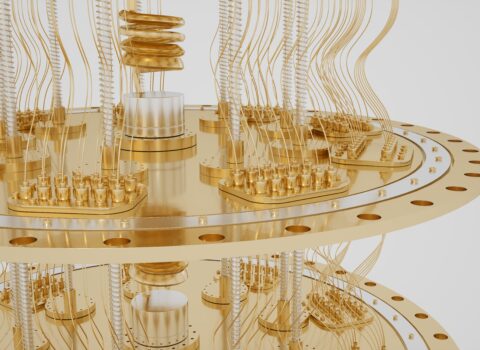 June 27, 2023QUANTUM DAY @ FBKA day of discussion involving the national research and innovation ecosystem on quantum technologies was held at FBK on May 23, 2023. A whole new level for supercomputing, communication networks, and the competitiveness of the production system, particularly for SMEs that represent the vast majority of the Italian industrial structure
June 27, 2023QUANTUM DAY @ FBKA day of discussion involving the national research and innovation ecosystem on quantum technologies was held at FBK on May 23, 2023. A whole new level for supercomputing, communication networks, and the competitiveness of the production system, particularly for SMEs that represent the vast majority of the Italian industrial structure -
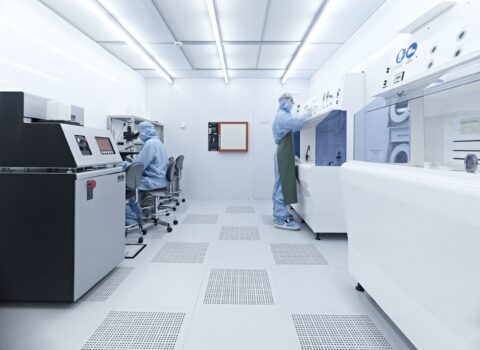 April 26, 2023Memorandum of understanding between Fondazione Bruno Kessler-Sensors and Devices Center and ELI-ERIC (european research infrastructure consortium)A Memorandum of Understanding for science and technology cooperation between the Extreme Light Infrastructure (ELI ERIC) and Fondazione Bruno Kessler was officially signed in February 2023.
April 26, 2023Memorandum of understanding between Fondazione Bruno Kessler-Sensors and Devices Center and ELI-ERIC (european research infrastructure consortium)A Memorandum of Understanding for science and technology cooperation between the Extreme Light Infrastructure (ELI ERIC) and Fondazione Bruno Kessler was officially signed in February 2023. -
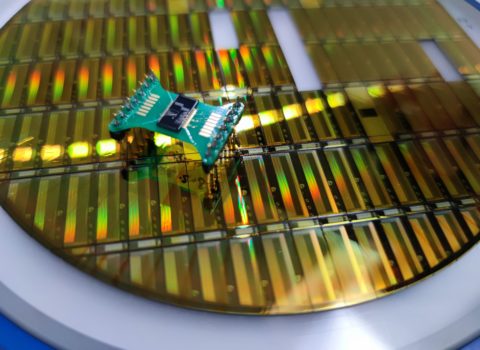 October 21, 2021PHOTONICS: FBK study reveals an innovative method for reading optical signalsThe study, published in the international journal "Optica" and funded by the joint laboratory Quantum @ Trento, is the result of FBK's proven experience in the production of photonic devices and integrated silicon detectors
October 21, 2021PHOTONICS: FBK study reveals an innovative method for reading optical signalsThe study, published in the international journal "Optica" and funded by the joint laboratory Quantum @ Trento, is the result of FBK's proven experience in the production of photonic devices and integrated silicon detectors -
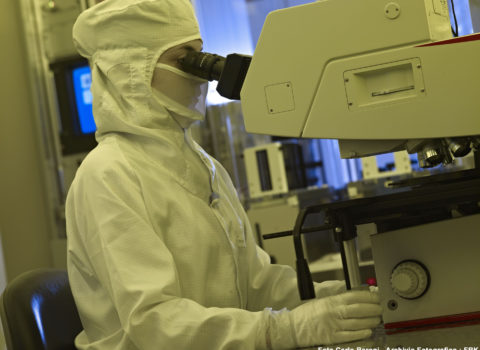 August 26, 2021NANOINNOVATION 2021 – FBK WITH IT-FAB ORGANIZES THE THIRD EDITION OF THE SCHOOL ON MICRO AND NANOTECHNOLOGIESAlso this year, Trento-based Fondazione Bruno Kessler contributes to the organization of NanoInnovation, the international conference dedicated to Micro and Nanotechnologies and their impact on science and innovation.
August 26, 2021NANOINNOVATION 2021 – FBK WITH IT-FAB ORGANIZES THE THIRD EDITION OF THE SCHOOL ON MICRO AND NANOTECHNOLOGIESAlso this year, Trento-based Fondazione Bruno Kessler contributes to the organization of NanoInnovation, the international conference dedicated to Micro and Nanotechnologies and their impact on science and innovation. -
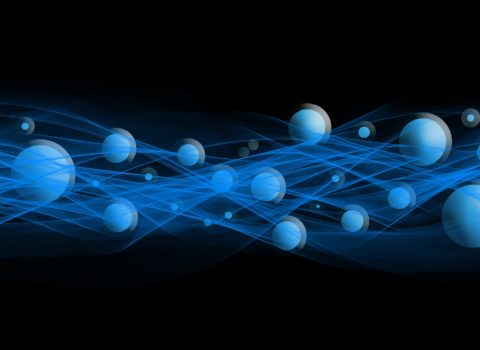 May 13, 2021Quantum bits ignite the engine of innovationUniversity of Trento, Fondazione Bruno Kessler and National Institute of Nuclear Physics together to build an ecosystem of quantum sciences and technologies. Thus the Q@TN laboratory in Trento becomes an important node at national and European level for this sector and a unique setting where to design devices and create prototypes for supercomputing, secure communications and sensors
May 13, 2021Quantum bits ignite the engine of innovationUniversity of Trento, Fondazione Bruno Kessler and National Institute of Nuclear Physics together to build an ecosystem of quantum sciences and technologies. Thus the Q@TN laboratory in Trento becomes an important node at national and European level for this sector and a unique setting where to design devices and create prototypes for supercomputing, secure communications and sensors -
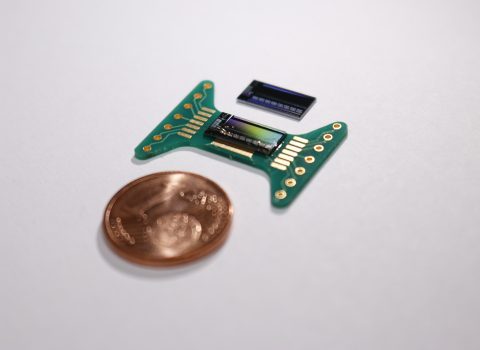 June 15, 2020FROM FBK THE QUANTUM SIMULATOR OF THE FUTUREThe Bruno Kessler Foundation coordinates EPIQUS, a project funded by the European Commission that aims to develop a new generation "quantum simulator"
June 15, 2020FROM FBK THE QUANTUM SIMULATOR OF THE FUTUREThe Bruno Kessler Foundation coordinates EPIQUS, a project funded by the European Commission that aims to develop a new generation "quantum simulator" -
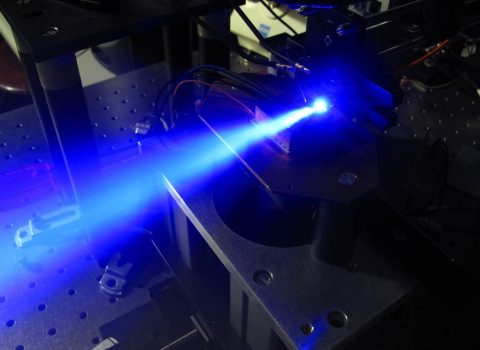 May 13, 2020EU-funded project “SUPERTWIN” success storyOur researchers have employed quantum physics to develop a novel optical microscope that opens up the potential to view the tiniest of objects - including many viruses - directly for the first time
May 13, 2020EU-funded project “SUPERTWIN” success storyOur researchers have employed quantum physics to develop a novel optical microscope that opens up the potential to view the tiniest of objects - including many viruses - directly for the first time -
August 5, 2019Quantum technology for unhackable smartphonesFondazione Bruno Kessler, with the Q@TN laboratory and the QRANGE project, is at the forefront of the new quantum revolution
-
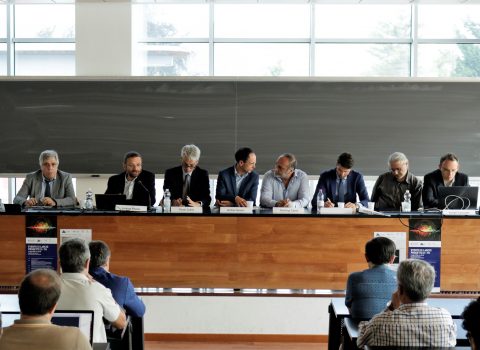 July 5, 2018QUANTUM @ TRENTO: nuovo laboratorio congiunto fra Università, CNR e FBKObiettivo: conquistare la leadership italiana nelle scienze e tecnologie quantistiche. Aziende e istituzioni di ricerca insieme per attrarre di investimenti e sviluppare nuova tecnologia nell’ambito della flagship europea da 10 miliardi in 10 anni. Il presidente Cnr Inguscio: «Trento da sempre all’avanguardia nel finanziare scienza di frontiera e alta formazione»
July 5, 2018QUANTUM @ TRENTO: nuovo laboratorio congiunto fra Università, CNR e FBKObiettivo: conquistare la leadership italiana nelle scienze e tecnologie quantistiche. Aziende e istituzioni di ricerca insieme per attrarre di investimenti e sviluppare nuova tecnologia nell’ambito della flagship europea da 10 miliardi in 10 anni. Il presidente Cnr Inguscio: «Trento da sempre all’avanguardia nel finanziare scienza di frontiera e alta formazione» -
April 4, 2018Quantum computing is closer than we first thoughtThe transistor happened because of the research and development made for the hearing aid that spawned the computing industry as we know it. So we talked about supercomputers with Jacob Biamonte (Skoltech), trying to see what could the “hearing aid” of quantum computing be and we found out that the impact of this technology will surely be “shocking” and “irreversible”.
-
February 9, 2017Quantum science and technologies: the Trentino-based research organizations team up for the European callThe University, FBK and CNR invite local institutions to participate along with the flagship launched by the European Commission for 2018. Objective: to set the stage for the second quantum revolution through an alliance between academia and industry will that promote European leadership in this area. Friday at 5:30 pm in Povo the launch of the Q @ TN Project. Quantum science and technologies: the opportunities for development in a talk by Tommaso Calarco